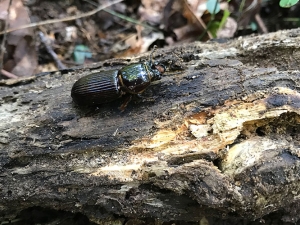

Research Bio
Matt Traxler received his BS and PhD in microbiology from the University of Oklahoma, and was a postdoctoral fellow at Harvard Medical School. His PhD studies used whole-genome transcriptomics and network analyses to understand stress responses in E. coli. His postdoctoral studies have included the use of NanoDESI and MALDI-TOF imaging mass spectrometry to examine chemical exchange during actinomycete interactions. His research aims include integrating metabolomic and transcriptomic paradigms with the ultimate goal of understanding the role of specialized metabolism in bacterial interactions and translating this knowledge into a platform for natural products discovery.
His research explores the chemical ecology of interactions between actinomycete bacteria. Collectively, actinomycetes are the single deepest source of medicinal natural products, including antibiotics, antifungals, and anticancer agents (Fig. 1). Interactions between actinomycetes involve a remarkably rich chemical repertoire and provide a new approach for discovering novel natural products. His research program will incorporate whole-genome transcriptomics and newly developed mass spectrometry techniques to examine the physiology of actinomycete interactions as they relate to natural product biosynthesis and translate these insights into a new platform for natural products discovery.
Research Expertise and Interest
bacterial interspecies interactions, specialized metabolism

